| Umělec 2006/3 >> Pavel Švec | Просмотр всех номеров | ||||||||||||
|
|||||||||||||
Pavel ŠvecUmělec 2006/301.03.2006 Jiří Ptáček | new faces | en cs de |
|||||||||||||
|
“When the medicine helps, we don’t ask where it comes from.” (Pavel Ryška in a critique of Pavel Švec’s Life on Other Planets)
I would say, “When the medicine doesn’t help, we have another prescribed.” And we can never admit to ourselves our own mortality. We try to keep ourselves alive as long as possible, although we don’t know why; we think of long life as if it was some sort of important victory. We devour war stories and hospital dramas because matters of life and death can be affected by momentary turns of luck. We say, “Horrible. What would I do if….” The drive for self-preservation forces us to forget all the troubles we face in our life, and so when standing over the coffin of a ninety-year old man we say he lived to a good age. This premier film from recent graduate Pavel Švec (born in 1980, FAVU Brno, the intermediary studio of Václav Stratil) Life on Other Planets should be seen and commented on by film critics, not professors working in other arts.. The heroes of the detailed animated film are Eyes, who go by the names Mr. and Mrs. Eye. Like “the Residents” in house slippers. Along with them is “Voice,” or… Stephen Hawking. While the Eyes watch TV, and if necessary, go to the bathroom, Hawking ceremoniously – as much as his machine voice allows him to – pronounces his skeptical world view about the limits of human cognition. If there is life on another planet, it is pretty similar to our own. Are lives in space so similar to our own? We have had radar beams searching the cosmos for years, we photograph the deserts of foreign planets and some people even throw pots into the air, which look like ufos, to provide evidence that They keep visiting us. Some scientists point out that search for extra-terrestrial intelligence is limited to our own comprehension of the idea of “life forms.” Imagine that we meet some extraterrestrials and find out that they are just like us: The extraterrestrials do only what we do and experience only what we experience. Wouldn’t that be a disappointment? Stephen Hawking scratches with a key into the protective laquer of human illusions which normally slows down the progress of mental corrosion. Luckily he is only another false prophet and his speeches suffer from the same illness for or against which he prays. The questioned truths he only replaces with new truths. For those who will look through archives to find out the reasoning behind Hawking’s ideas, here are a few warnings: 1. It’s no use, you will never find it. 2. Look into the “Book of Disquiet” by Fernando Pessoa. 3. Realize that everything is Švec’s fault, the mastermind behind the most desperate visions humankind has ever invented.
01.03.2006
Рекомендуемые статьи
|
|||||||||||||

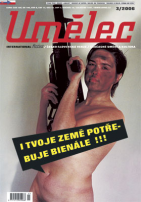






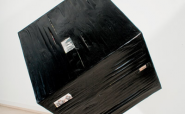
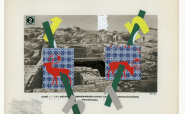
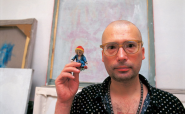
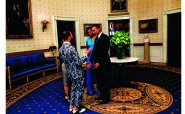
Комментарии
Статья не была прокомментированаДобавить новый комментарий